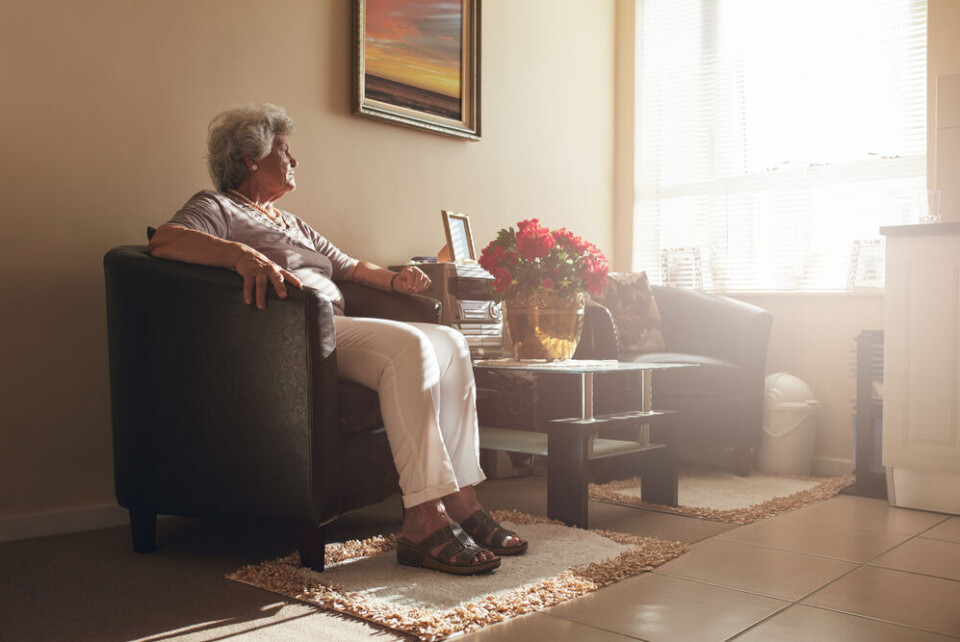-
I had no debits taken for French residential tax - what should I do?
Amounts taken depend on how much, and when, you are scheduled to pay
-
What the seller of a house in France must leave or remove
There are regulations in place for certain items, others can be subject to agreement
-
France’s end-of-life law under debate as conditions examined
The text centres on the definition of and access to ‘medical assistance in dying’
Married, Pacs, cohabit: your French home rights after partner’s death
Following the death of a partner, your right to remain in the shared home will depend on your relationship status and if you rent or own the property

The death of a partner is an emotional time but it can also throw up bureaucratic challenges, including what rights the surviving person has to remain in the family home.
Such rights might have been addressed in the deceased’s will or be dealt with via another mechanism such as a tontine clause in the property deeds passing ownership to the survivor.
However, even if that is not the case, widows and widowers have a right to continue to live in their home for one year after the death of their loved one.
After that, the rules depend on your relationship status and if you rent or own the property.
We sum up some of the key points.
Married couples
Homeowners: You can remain in the family home for life, using its furnishings, whether you jointly owned it or it was in your spouse’s name alone (as long as they did not cancel this by will), but not if you owned it jointly with other people.
If other people now have a part-share (eg. children of your spouse who inherited from them) you must formalise your wish to benefit from the droit viager au logement to give you the right to stay there for life.
This has to be done within a year of the death and remains valid even if you remarry.
The simplest way to do this is to notify the notaire involved in dealing with your spouse’s estate.
This right has a value based on a formula.
If your share of the estate is worth more, you can claim the remainder; if it is worth less, you do not have to make it up to other heirs.
Tenants: You have the right to take over the lease, even if it was previously only in your spouse’s name.
You can claim a lifetime right to use the furnishings.
In the year after the death, the surviving partner can claim the rent money from the deceased’s estate.
Read more: Married couples: Are you familiar with your French marriage regime?
Pacs couples
Homeowners: You only have a right to live in the property for one year after the death, even if you were joint owners.
Of course, this is not the case if you inherited the property in full ownership from your partner and there are no other part-owners.
Pacs partners do not inherit anything as an automatic right and this must be put in a will.
Tenants: Joint leaseholders are entitled to use the home and its furnishings for a year, unless the deceased’s will states otherwise.
After that, you can keep the lease if you signed it together or if you and your partner requested in writing to the landlord or agency to hold it jointly.
Otherwise, you could request a transfer of the lease, but your partner’s descendants and ancestors can also claim it, in which case a judge will rule on this.
Read more: What are the financial advantages of a French civil partnership?
Living together
Homeowners: No automatic rights apply, either for one year or for the lifetime.
If your partner bequeathed to you in a will their share of the property or the right to use it and receive rental income from it (and there is no conflict with other heirs), then you can remain.
Similarly, if you owned jointly with a clause that the property passes to you on the first death.
If bought through a société civile immobilière (SCI), the articles of association could stipulate that you remain in the property.
Otherwise, the deceased’s share passes to his or her heirs, who may decide to sell and oblige you to leave. You can ask the courts to intervene if you have young children.
Tenants: If you signed the lease, you have exclusive rights to it and can carry on living in the property.
If the lease was signed by the deceased only, you can transfer a rental lease, including for social housing, if:
- You were living with the deceased in a stable and ‘known’ relationship for at least one year before the death
- You can provide proof that you were living together, either from certificates from relatives, bills or certificates of cohabitation
If you lived together for less than a year, the landlord must agree and you must sign a new lease.
However, if you are disabled and can prove that you lived together with the deceased, you are entitled to stay.
Related articles
How to get round the French inheritance law on reserved heirs
Ways to cope with bereavement when living in France, away from family
























